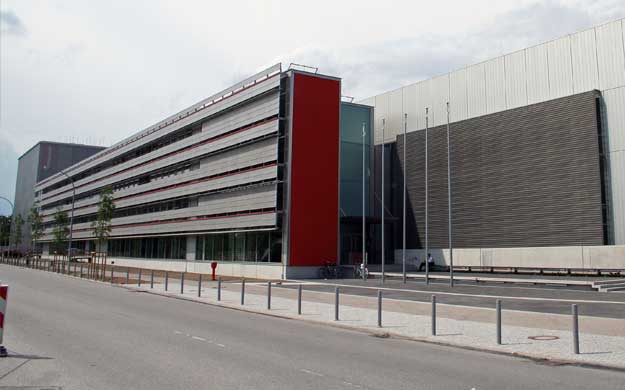Data Center is a must have for most Cities
If you’ve ever wondered where your data is stored — maybe those family vacation photos, your medical records, podcasts — they could be here, in a highly-secure, gray building north of Dallas called Digital Realty.
The inside of one of Digital Realty’s data centers looks a bit like a highly secure hospital, or prison, except there’s hardly anyone around.
“It doesn’t look like your typical office,” said Bryan Marsh, of Digital Realty. “There’s not a lot of people here. It’s mainly for running computers.”
Digital Realty is a global company that does what the name suggests: It sells real estate for data. Marsh used to sell office buildings to clients who cared about lush amenities like private conference rooms and gyms. Today, his clients care about access to power, space and security.
Marsh won’t say who his clients are, though they’re in industries that include finance, health care, retail, etc. But he said business is good.
“Demand keeps growing and exploding,” Marsh said. “It’s almost tough to keep up with it at times.”
The demand for digital storage is growing because of us.
“You and I use a data center every day when we use our phones, when we use an app to order something, when we trade, when we bank, when you play a game,” said Bo Bond, managing director for the real estate firm JLL’s Dallas office. “Every time, you’re hitting a data center.”
A study he conducted shows North Texas is the number three data center market in the country. Northern Virginia and Northern California take the top two spots, which Bond said makes sense because they’re government and tech centers respectively. So why North Texas?
“We’re very diverse in our industries,” Bond said. “We have a very low cost of power, low taxation, centrally located, great airport, easy to develop.”
Those ingredients have made Dallas-Fort Worth a popular spot for major third party data center providers like Digital Realty, CyrusOne and T5 Data Centers. In July, Facebook started construction on a $1 billion data center in Fort Worth, not far from a center owned by Blue Cross Blue Shield and another for Citigroup.
Bond said states and cities are fighting to recruit data centers because of the revenue they can bring in.
“The amount of investment is much greater than any other piece of real estate, much more than an office building, a warehouse, a retail a hotel, and to a municipality, that’s tax revenue,” Bond said. “And then one of the benefits to a data center is it doesn’t tax your infrastructure.”
Cities, Taxation & the Data Center Solution
It doesn’t tax the infrastructure because a data center doesn’t generally employ a lot of people. Still, nearly two dozen states have specially tailored incentives to attract data centers, according to the Associated Press.
The biggest concern is energy use. Keeping all those servers cool requires an enormous amount of power. In 2013, data centers used around 90 billion kilowatt hours of electricity, or the equivalent of what’s produced by about 30 large power plants, according to Pierre Delforge, with the Natural Resources Defense Council.
“We don’t build new smelters or steel plants, but these are the modern equivalent of these industrial energy users,” he said.
And while we often blame the large server farms for being energy hogs, Delforge said the big data centers are usually pretty energy efficient, and more are turning to renewable energy. The real problem, he said, is with the millions of smaller data servers in office building throughout our cities. We have to clean up those little rooms full of servers Delforge said, and make major data centers more energy efficient if we want a clean cloud.
Source: http://www.marketplace.org/topics/tech/cities-are-vying-land-data-center-projects


